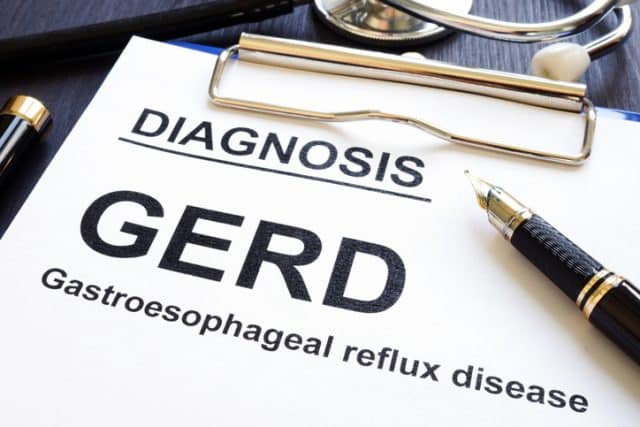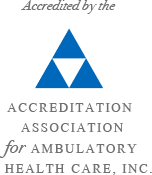Esophageal pH Monitoring
in New York, NY

What is pH monitoring?
pH monitoring, also known as esophageal pH monitoring, is the measuring of acid from the stomach that is regurgitated into the esophagus, a frequent occurrence for patients that suffer from gastroesophageal reflux disease (GERD). In general, the pH of something refers to the measure of acidity or alkalinity within a solution. By evaluating the acidity levels that are backwashed into the esophagus, pH monitoring is useful in the diagnosis and treatment of GERD.
At the Gramercy Park Digestive Disease Center, our gastroenterologist in NYC offers personalized pH monitoring plans to help you comfortably and effectively manage your symptoms.
Schedule a Consultation Today!
Advantages of esophageal pH monitoring
Advantages of undergoing pH monitoring at GPDDC include:
- Effective and commonly used GERD test
- Helps diagnose GERD and evaluate the effectiveness of treatment
- Minimal discomfort
- Does not impede the patient’s ability to eat, sleep, or partake in physical activity
Why is pH monitoring performed?
In addition to helping classify acid reflux for diagnosis purposes, pH monitoring also assists in determining the effectiveness of certain medications used for the treatment of GERD. For patients that are experiencing chest pain, esophageal pH monitoring can help in the determination of the cause of the pain, whether it is a result of acid reflux or if it may be related to more severe problems such as cardiac disease.
Esophageal pH monitoring diagnosis
 Esophageal pH monitoring is performed with the use of a catheter that has a sensor on its tip to detect acid. This tool is incredibly thin, about one-sixteenth of an inch wide, and is made of plastic. During the pH monitoring procedure, the catheter is inserted through a nostril and guided down the back of the throat into the esophagus, and the patient is then instructed to swallow. The catheter is able to detect levels of acid from the area just above the lower esophageal sphincter, which is the area that, when functioning properly, prevents stomach acid from refluxing into the esophagus. A reader is attached to the catheter in order to register the acidity levels over the course of one day.
Esophageal pH monitoring is performed with the use of a catheter that has a sensor on its tip to detect acid. This tool is incredibly thin, about one-sixteenth of an inch wide, and is made of plastic. During the pH monitoring procedure, the catheter is inserted through a nostril and guided down the back of the throat into the esophagus, and the patient is then instructed to swallow. The catheter is able to detect levels of acid from the area just above the lower esophageal sphincter, which is the area that, when functioning properly, prevents stomach acid from refluxing into the esophagus. A reader is attached to the catheter in order to register the acidity levels over the course of one day.
To test for acid reflux, the catheter is required to stay in place for 24 hours. This means the patient will be sent home with the device in place. For the 24 hour time period that the device is in place, the patient will be able to eat, sleep, and resume their regular routine. During this time, your physician will instruct you to record all activities either through the use of a diary or directly on the recorder attached to the catheter. All meals, periods of sleep, and physical activity should be recorded. After the catheter is removed, the data detailing the course of your daily diet and activities will be graphed and correlated to the corresponding levels of present acidity.
Battery-operated pH monitoring capsule
Another method for pH monitoring is with the use of a battery-operated capsule. The capsule is inserted through the nostril with a catheter but is able to be linked to the esophagus, allowing the catheter to be removed directly after insertion. The capsule records the acidity levels for 2-3 days before detaching and passing through the stool. The biggest benefit of the capsule over the catheter is that it eliminates any discomfort associated with the catheter protruding from the nose.
Overall, there are very few side effects or complications associated with esophageal pH monitoring. The catheter may cause mild discomfort in the back of the throat, especially when swallowing. Overall, however, the catheter does not impede a patient’s ability to eat, sleep, or partake in physical activity.
See what our patients have to say…
“Excellent experience. I was concerned after reading the reviews but I was in and out quickly. Everyone was very nice and efficient. Very good experience.” – Rob H.
Contact Gramercy Park Digestive Disease Center
If you believe you may benefit from pH monitoring, the first step is to consult a skilled NYC gastroenterologist. Gramercy Park Digestive Disease Center (GPDDC) is home to top board-certified gastroenterology physicians, with an extensive background in diagnosing and treating GERD with esophageal pH monitoring. Call (212) 979-3237 or use the form on this page to learn more about pH monitoring.


